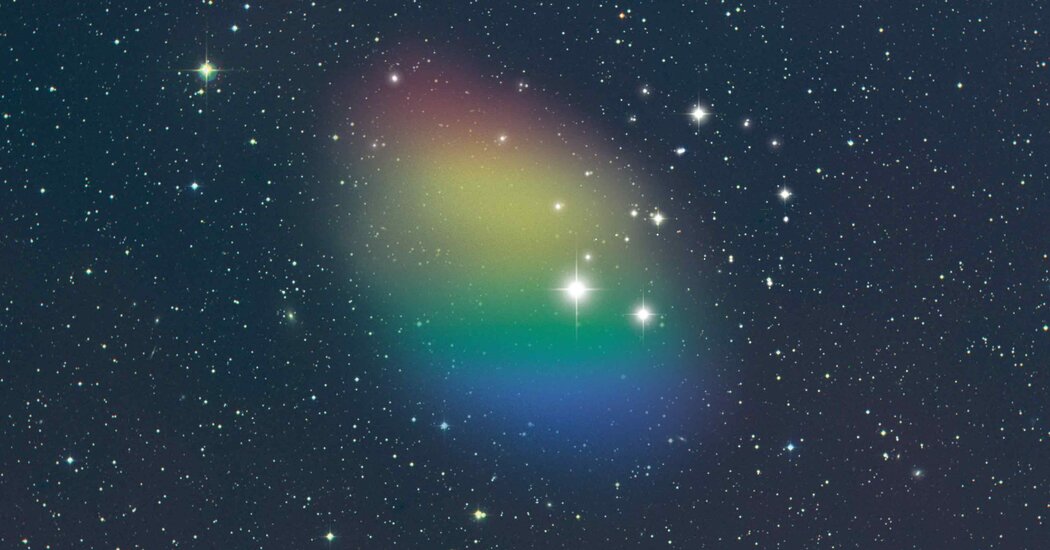
To dark matter and dark energy, add dark galaxies — collections of stars so sparse and faint that they are all but invisible.
What do you call a galaxy without stars?
Earlier this month, radio astronomers announced that they had discovered the darkest galaxy ever not quite seen, a cloud of hydrogen gas resembling our own Milky Way galaxy in many respects, such as its mass and rotation, but with no stars that anyone can discern.
“What we might have here — might — is the discovery of a primordial galaxy, a galaxy that is so diffuse, it hasn’t been able to form stars readily,” Karen O’Neil of the Green Bank Observatory in West Virginia told a. 8 news conference at a meeting of the American Astronomical Society in New Orleans on Jan. 8.
That same week, a group of Spanish astronomers led by Mireia Montes, a research fellow at the Canary Islands Institute of Astrophysics, revealed the discovery of another nearly starless galaxy they called Nube, Spanish for “cloud.”
“With our present knowledge, we do not understand how a galaxy with such extreme characteristics can exist,” Dr. Montes said in a statement released by the institute. Dr. Montes is the first author of the new paper, which was published in the journal Astronomy & Astrophysics.
And so, we can add “dark galaxies” to “dark matter,” “dark energy” and the other terms of darkness already in the cosmic lexicon.
Dark galaxies are entities whose stars are so sparse and faint that their light cannot be discerned other than as a thin, transparent haze that doesn’t seem to contain any stars at all. (Early on, dark galaxies were referred to as “low surface-brightness galaxies” or “ultra-diffuse galaxies,” but time and jargon march on.) As astronomers continue to probe deeper into the skies with more powerful and smarter eyes, dark galaxies have begun popping up more frequently, challenging long-held views about the formation and evolution of galaxies.
We are having trouble retrieving the article content.
Please enable JavaScript in your browser settings.
Thank you for your patience while we verify access. If you are in Reader mode please exit and log into your Times account, or subscribe for all of The Times.
Thank you for your patience while we verify access.
Already a subscriber? Log in.
Want all of The Times? Subscribe.
